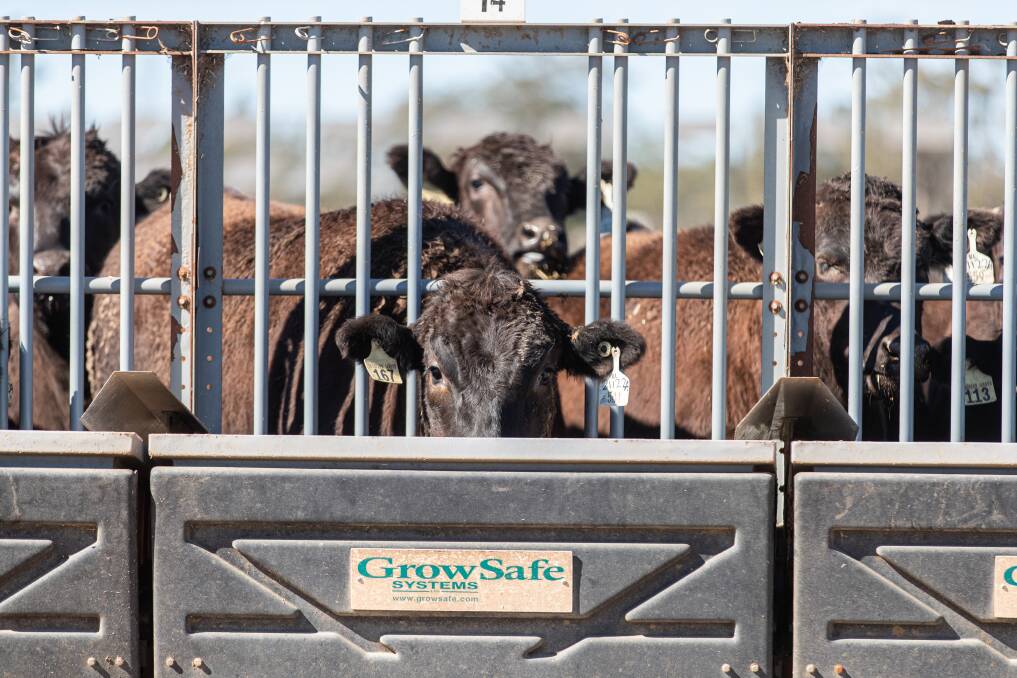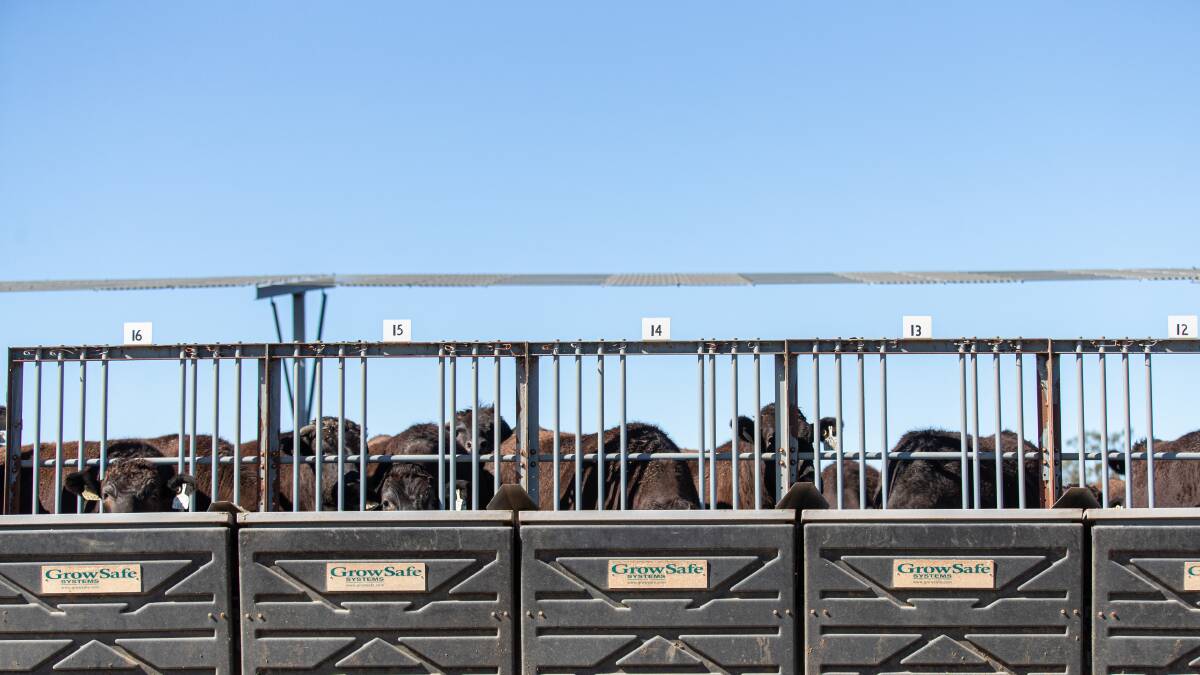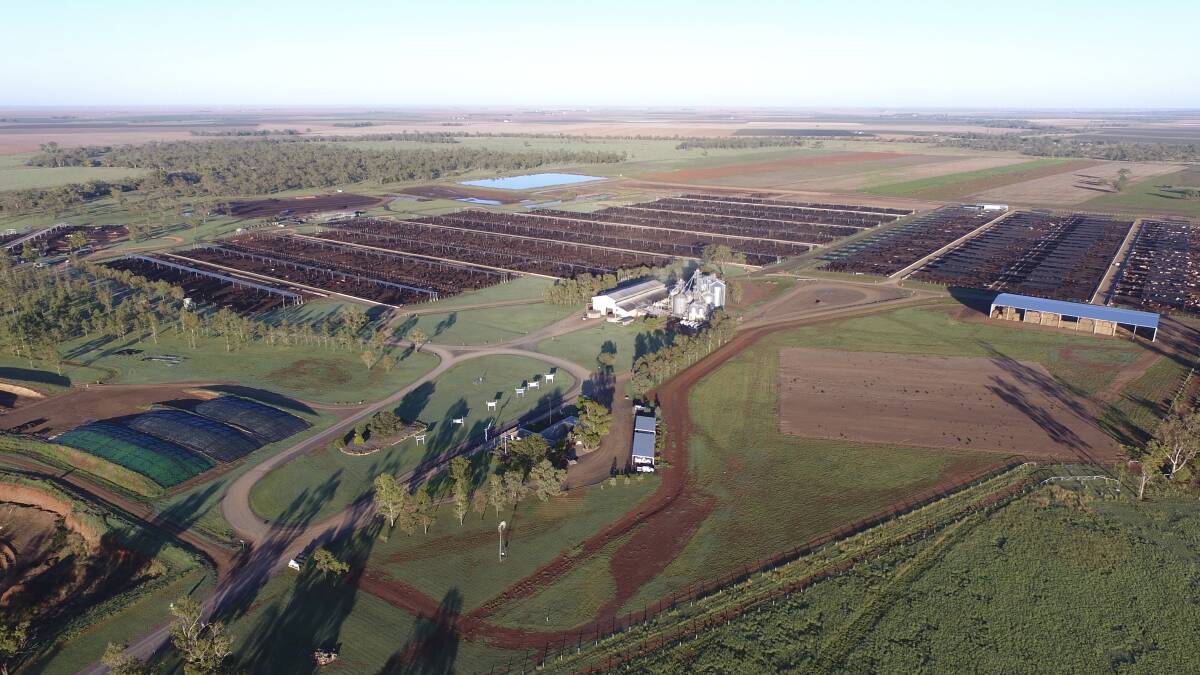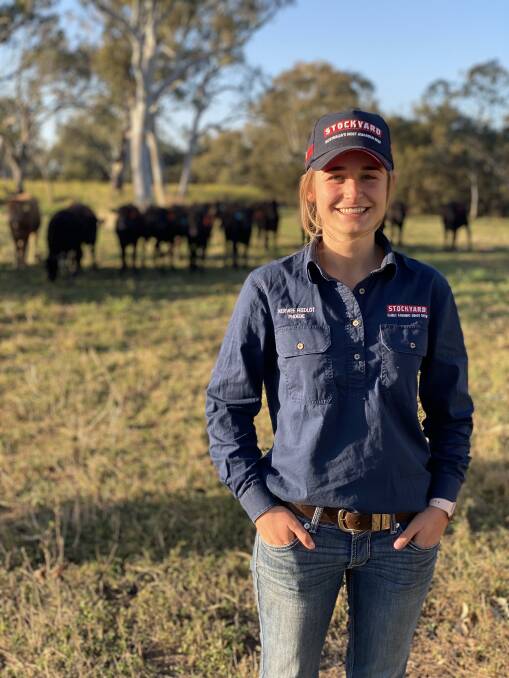Cutting edge trial offers cattle producers opportunity to find their most profitable genetics

If the Australian agricultural sector is to meet the food demands of a growing global population, it is going to need to do two things: increase production and become more sustainable.
That's why there has been such a focus in recent years on genetics and feed conversion rates amongst cattle producers.
It is also what led Meat & Livestock Australia, the Australian Wagyu Association and Angus Australia to partner with Stockyard for a ground-breaking progeny trials.
Stockyard's Kerwee feedlot has installed Vytelle's Growsafe feed bins in attempt to uncover Australia's most profitable genetics.
By testing net feed intake (NFI), that is, feed going into weight gained against known genetics, they are able to establish which animals gain the most weight by eating the least amount of grain.
Stockyard's Genetic Improvement Officer Phoebe Jenkins says the trials are an important step forward for the industry as a whole.

Traditionally, she said, producers have relied on visual assessments and carcass weight data to determine their most profitable genetics.
However, the granular nature of the data provided by the trials removes any bias or ambiguity from the process. It simply allows you to see which animals grow better with less feed.
"We're all shifting towards a more sustainable future, especially within agriculture, and being able to produce more by using less is going to be really important moving forward," Miss Jenkins said.
Stockyard was the first to conduct commercial sire trials with the technology in 2016 and are the only privately held NFI testing station where the results are open to the broader industry.
Importantly, Stockyard is introducing new software and adding in-pen weigh cells to their pens. The result will be improved granularity of data, and less disruption to the cattle in the trial. This will enable NFI testing of 180 cattle across their long-fed Angus and Wagyu programs at the one time.

The high-tech bins are mounted on electronic weigh-cells that take 1000 reading every three seconds. They use RFID-ear tag readers to record when each individual animal is eating and the amount of feed each animal consumes.
The new in-pen weigh cells are installed near water troughs. The technology measures partial body weight, collecting up to 500 individual weights on each animal in a single day. An algorithm based on breed and sex then calculates a 'live weight' daily.
Miss Jenkins says this upgrade means that Stockyard can determine individual feed efficiencies of any sire line without biasing results due to animal behaviour or human interaction. This will lead to improvements in productivity, sustainability, and profitability.
"Having the raw data right at your fingertips will help producers shorten the time period (it takes to figure out which genetics are most sustainable)," Miss Jenkins said.
"So, you can cut out the under performers quicker and progress your herd to being a more sustainable in general."
By identifying feed to weight efficiencies and proven genetics, Stockyard can manage their animals individually by optimising feed, predicting carcass weights and making data-driven decisions on the feeding length.
For Stockyard's own breeding herd, the trial has enabled them to identify genetics which may have superior growth qualities and balance them with high marbling genetics, hitting the sweet spot of efficient and high marbling cattle.

Stockyard's program also provides cattle breeders with individual animal data as well as the analytical tools and support they need to maximise profits and enable selection for feed efficiency, without jeopardising marbling performance or other desirable traits.
In fact, awards were recently given to Wagyu producers whose sires were top performing across net feed intake and marbling. While the partnerships with breed society, Angus Australia, works to provide Angus breeders with data in the hope to move the herd towards more feed efficient progeny, both on grass and grain.
Stockyard's induction and NFI testing period currently totals 100 days, so the pens have the capacity to run three feed test intakes per year, totaling 540 animals and providing significant capability for Wagyu sire testing.
Miss Jenkins believes the trial represents an exciting prospect for cattle producers' industry wide and hopes this technology will be embraced. It is important to keep up with the latest scientific developments and innovations, she says, otherwise you risk falling behind.
"At the end of the day, with this data you can make your herd more profitable and more sustainable, so it's a win, win really," she said.
Stockyard is offering placements in the NFI trials for both Angus and Wagyu producers. Please contact Stockyard's below representatives for available cohort dates.
- George Lubbe General Manager Feedlot Operations George@stockyardbeef.com.au 0408 502 787
- Phoebe Jenkins Genetic Improvement Officer phoebe@stockyardbeef.com.au 0439 221 469
Story in partnership with Stockyard.


